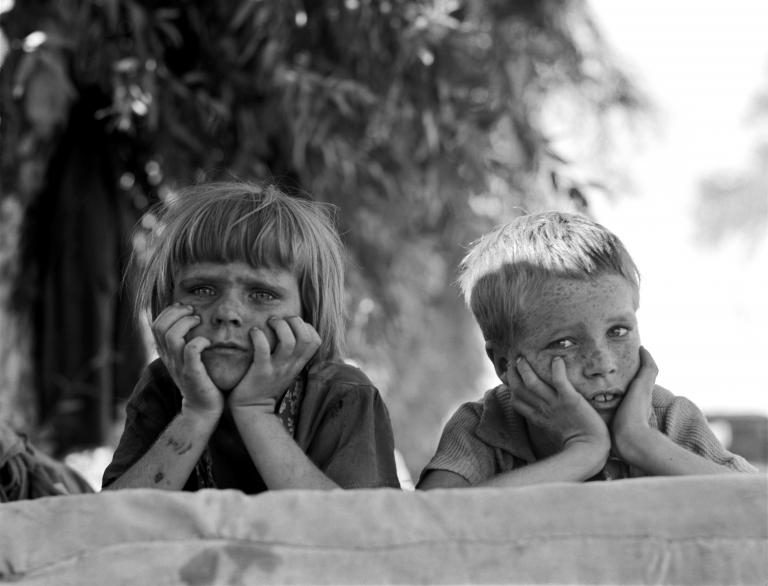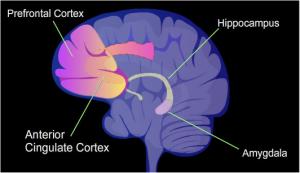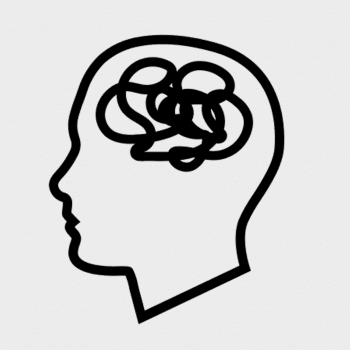I’m not prepared to share my words about the atrocities spelled out in the Pennsylvania report. For now, my aim is to enter into the suffering of the victims. In the words of Pope Francis, “may fasting and prayer open our ears to the hushed pain felt by children, young people and the disabled.”
In this process of listening, I cannot help but draw from my studies of trauma. As a scientist, I know the neurobiological and psychological consequences of the depraved actions of these priests. And the science is devastatingly clear about the gravity of the harm.
The neurobiology of childhood trauma
Severe stress triggers a massive biological process in a child’s body. This process, called the stress response system, elevates levels of hormones like adrenaline and cortisol.
These hormones are meant to keep us alive. They suppress nonessential functions (like digestion and reproduction) while preparing the body to take fight-or-flight action. Evolution built the human body to handle about 20 minutes of stress at a time, because this was usually sufficient when we happened to encounter a lion on the savannah.
Problems arise when the lion sticks around, because this chronically activates the stress response system.
This is the case for children who suffer Adverse Childhood Experiences (ACEs). These traumas include physical, sexual, and emotional abuse; household dysfunction; and physical and emotional neglect. Each ACE continues to activate the stress response system, releasing adrenaline and cortisol to the point that they become toxic. High blood levels of these stress hormones change the wiring of the child’s of brain architecture, and disrupt the development of her body systems.

In this way, early adversity can damage health and well-being for a lifetime. Research by the CDC shows that ACEs strongly predict low education and income. This links trauma to the intergenerational cycle of poverty. Furthermore, ACEs greatly increase the chance of diseases and health risks later in life, such as diabetes, heart disease, alcoholism, and depression.
This is heartbreaking. These priests had the power to destroy their victim’s health and flourishing for life.
The neurobiology of sex abuse
Sexual abuse triggers a specific set of changes in the developing brain. First, it alters the somatosensory cortex, the area that processes input from the body to create sensations and perceptions. Sexual abuse causes thinning in this area, which in turn reduces your ability to feel and desire interpersonal contact later in life.
Sexual abuse can also change patterns of communication between brain regions. In the long run, this can reduce connectivity between brain regions, such as the amygdala — which processes emotions — and prefrontal cortex — which is responsible for higher-level thought. This lack of connectivity can cause deficits in emotional processing, social skills, and self-control.

Clearly, sexual abuse is a singularly harmful ordeal that goes against the wiring of our bodies and the constitution of our souls.
The compound harm of clerical sex abuse
There is nothing more devastating than an act of sexual abuse committed by a priest, a man ordained to act in the person of Christ. As people of faith, we feel this down to our bones.
But science can tell us how:
- Priests, because of their authority in the Church, have immense spiritual power over children. Because of priest’s spiritual authority, victims are shamed into silence and feel helpless, which is a significant barrier to addressing the trauma, getting treatment, and attaining resolution (see this study). As a result, the trauma they inflict through abuse continues throughout the child’s lifetime.
- Religiosity is one of the most significant protective factors against trauma (see this study). In other words, one’s experience of God in community with others can protect the brain against the neural effects of trauma. For this reason, suffering sexual abuse at the hands of a religious authority, a spiritual servant, strips away a child’s protection against that very trauma.
Clerical sex abuse inflicts trauma, both at the time of abuse and throughout the lifetime. This trauma is compounded by the destruction of her relationship with God, an essential protective factor against the neural effects of that trauma.
What does this demand of us?
So what is asked of us in the face of such evil? I don’t mean institutionally, but on a personal level. How do we respond to the spiritual and biological suffering of a child after such an atrocity?
We are asked to love. We are asked to accompany.
Research from the Harvard tells us that, if a child is to develop resilience through trauma, she needs a relationship. She needs one stable, supportive relationship with a caring adult. The presence of this nurturing caregiver shuts off the biological stress response, and allows the child’s body and brain to resume their health and development.
This echoes the way the love of God, our Father, brings us to fullness of life (John 10:10). We are God’s children (Romans 8:14-16) and He created us in the image of His Trinitarian life, which is perfect love. Therefore, we flourish in the context of human relationships of love.
Let us listen to the victims, love the victims, suffer with the victims. Let us be present to their pain and so reflect the image of God, a God who took on our suffering and bore it to the Cross.
Further recommended reading
The original study on Adverse Childhood Experiences is well worth a read. You can also take the quiz here to find out your own ACE score.
Click here to report an abuse committed by a Catholic priest or religious.












